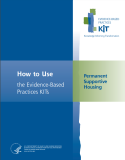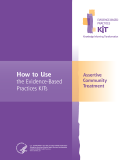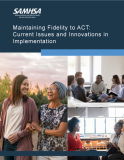
This brief provides an overview of Forensic Assertive Community Treatment (FACT)—an intensive service delivery model intended for people with serious mental illness who are involved in the criminal justice system.
Units per Product
Download
Forensic Assertive Community Treatment (FACT)
File Type: PDF
File Size: 669 KB







